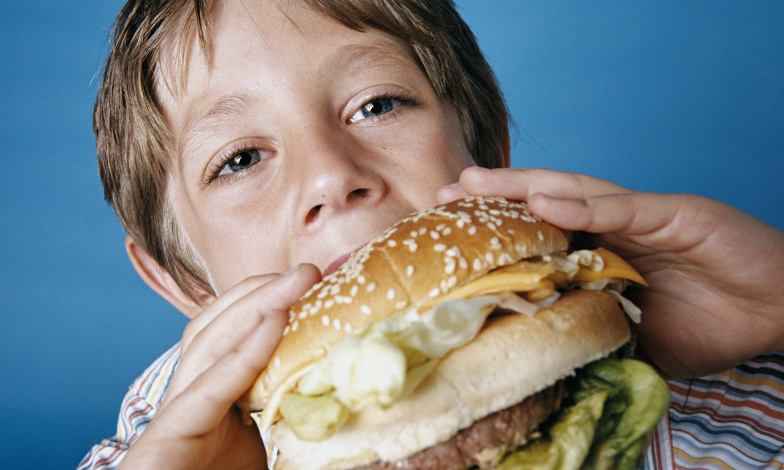Health
MD Warning: Antibiotics in Animal Feed Endangers Your Kids

According to the new report from the U.S. Pediatricians, the overuse of antibiotics within animal feed it making it harder for doctors to help children fight off life-threatening infections.
The recent report from the American Academy of Pediatrics (AAP) says that the fairly common practice of giving healthy livestock antibiotics as a ‘prevention’ tactic is making the drugs more ineffective especially when they are needed to treat infections in our children. Most of the nonorganic meat in the US is full of hormones and antibiotics which ends up in the food and is negatively influencing our health.
“The antibiotics that are fed to the animals lead to the development of antibiotic resistant bacteria in the animal,” said Dr. Theoklis Zaoutis of the University of Pennsylvania and the Children’s Hospital of Philadelphia. “These bacteria can then be spread to other animals, the environment and to humans.”
According to Dr. Jereome Paulson and Zaoutis more than 2 million people in the US become ill with infections that are antibiotic-resistant each year. As a result, 23,000 people a year die because we overuse antibiotics.
Antibiotics are in our food, over prescribed and in many household products. When you eat meat or dairy products you fill your body with antibiotics that can create super bacteria within your system. When you use antibacterial liquid soaps you are also destroying good bacteria while also making bad bacteria stronger and more resistant. The results are a weakened immune system and a harder time fighting off infections.
Researcher estimate that the costs to the US healthcare system because of antibiotic resistant strains of bacteria are anywhere from $21billion to $34 billion each year.
Our children are not spared from this issue. Antibiotic-resistant bacteria end up in the food supply because of animals being exposed in their environment be it in a pasture or in factory farming.
Out of all the major infection cases, it was most common in children under the age of five according to the CDC (Center for Disease Control) and the Prevention’s Foodborne Diseases Active Surveillance Network.
People in the US are unable to get antibiotics without a prescription but according to the researcher animals can.
There are a few different things that parents can do to help counter balance the overuse of antibiotics in their children. Both parents and pediatricians can be more careful to not prescribe antibiotics when there is a viral infection such as a cold because they will not be effective. In theory, we should try and fight off illnesses on our own with the support of good nutrition and only use antibiotics as a last resort.
Another way to combat the antibiotics is to discourage antibiotic use in livestock. You can do that by voting with your dollars and only buying organic meat or meat that is “raised without antibiotics,” said Urvashi Rangan who is the director over the Consumer Reports Food Safety and Sustainability Center.
“Consuming foods from animals produced without the routine use of antibiotics is one important step in reducing personal risk; so is cooking our foods thoroughly,” said Rangan, who wasn’t part of the study.
Long Term Solutions
There are two long-term solutions. One is that we phase out meat and other animal products. This takes some creativity, but there are a lot of meat alternatives that you can flavor the same way and barely notice a difference. Most of our favorite parts of eating meat is the plant seasonings anyways.
The second option is that we drastically change how we treat the animals that we, as a society, are raising for food. We need to stop using antibiotics in healthy animals. We also need to get our animals out of the factory farms and back out into a more natural environment so they don’t get sick and need the antibiotics to begin with. This will help prevent the need for antibiotics while giving these animals the ability to better enjoy the time they have.
Antibiotic researcher Timothy Landers from Ohio State University in Columbus points out that just because you received your meat from an organic source doesn’t guarantee that there won’t be harmful antibiotic resistant bacteria present.
“From a farmer’s perspective, the use of antibiotics helps ensure that food is safe, nutritious and affordable,” Landers said. “What we have lacked is a coordinated, integrated approach to antibiotic resistance including experts on human health, food production animal health and the environment.”
In the end, we do not know enough about antibiotics and more research is needed on the topic to determine if they are even safe to be in the food supply at all.
“..more than 50 renowned scientists signed on to the FDA letter calling for action: we simply must have more data on antibiotic use in food-animal production in order to preserve our life-saving antibiotics and slow this growing public health crisis.”- Lance B. Price, Ph.D., is a microbiologist and the director of the Antibiotic Resistance Action Center at Milken Institute School of Public Health at the George Washington University in Washington, DC.
Let us know in the comments below what you think about the meat industry, antibiotics and how it is all affecting out health.
Sources- www.reuters.com
pediatrics.aappublications.org
Image Credits: Jean Michel Foujols/Corbis
Typos, corrections and/or news tips? Email us at Contact@TheMindUnleashed.com

